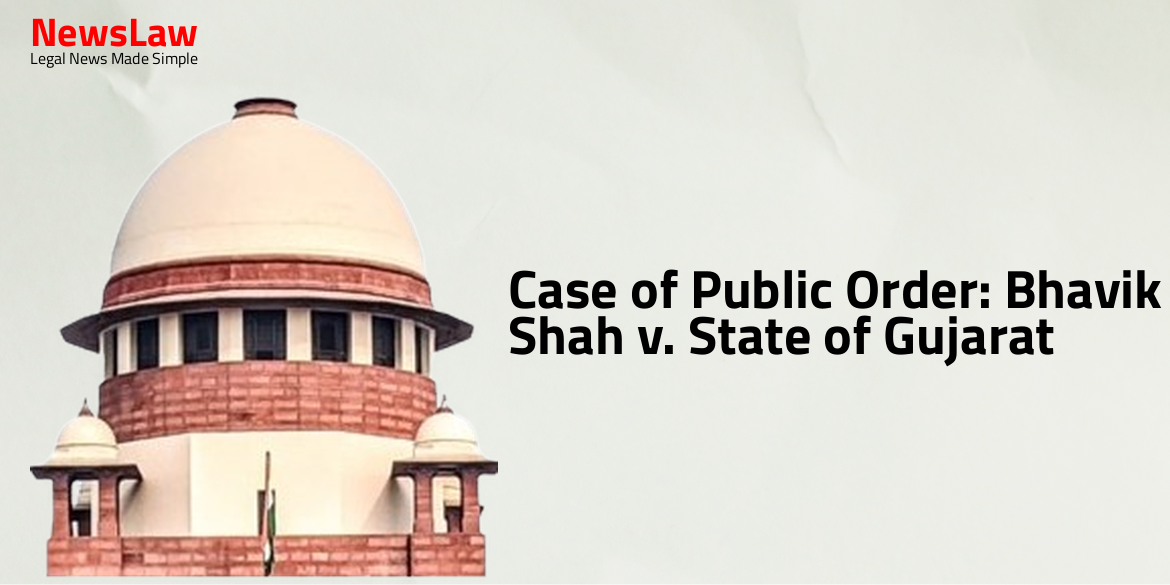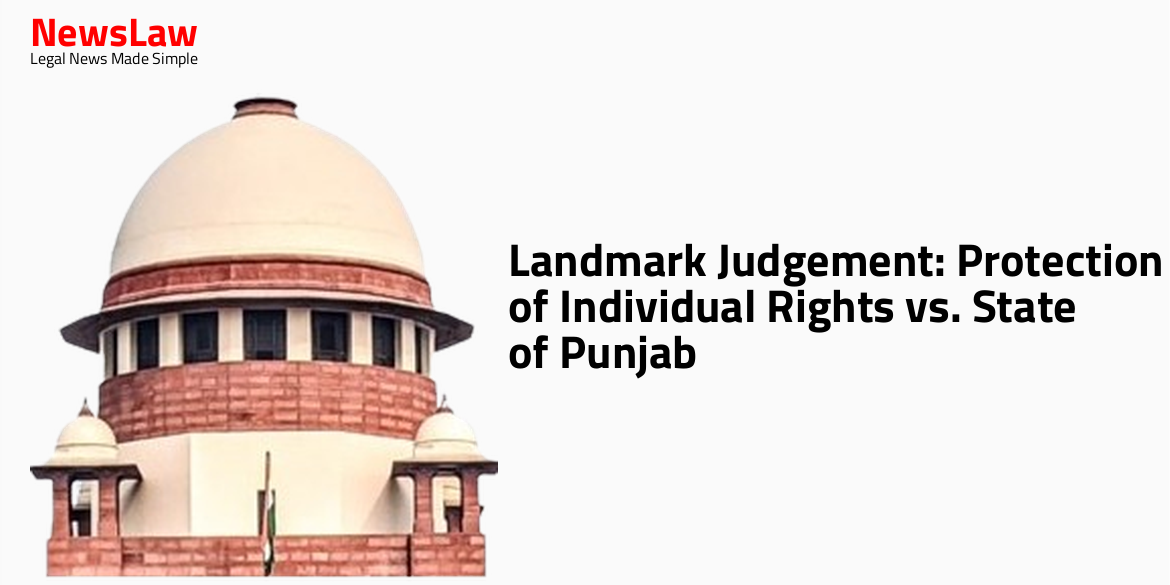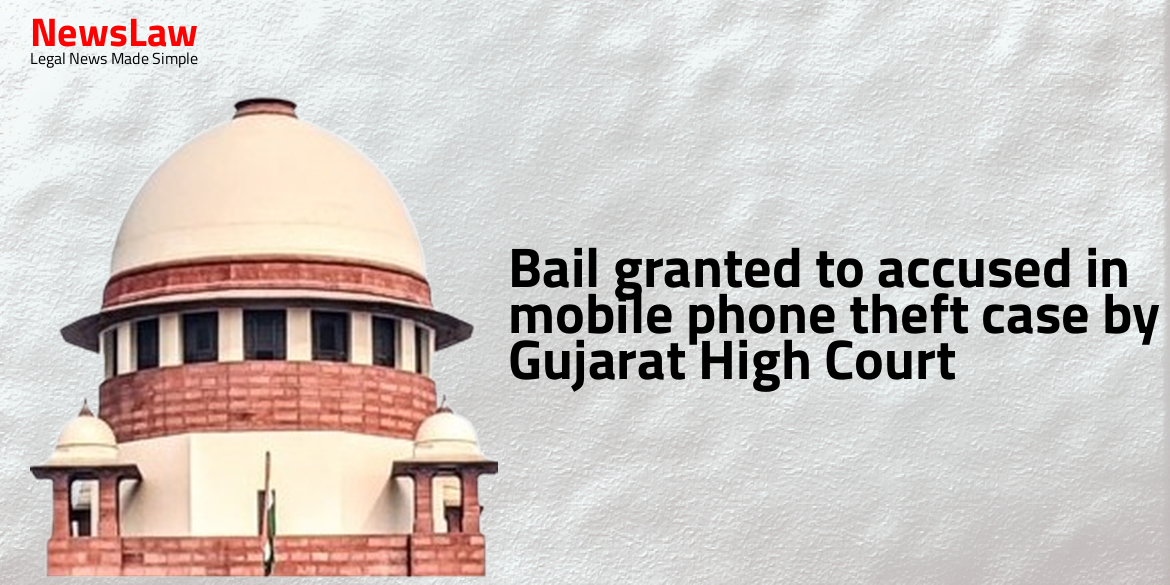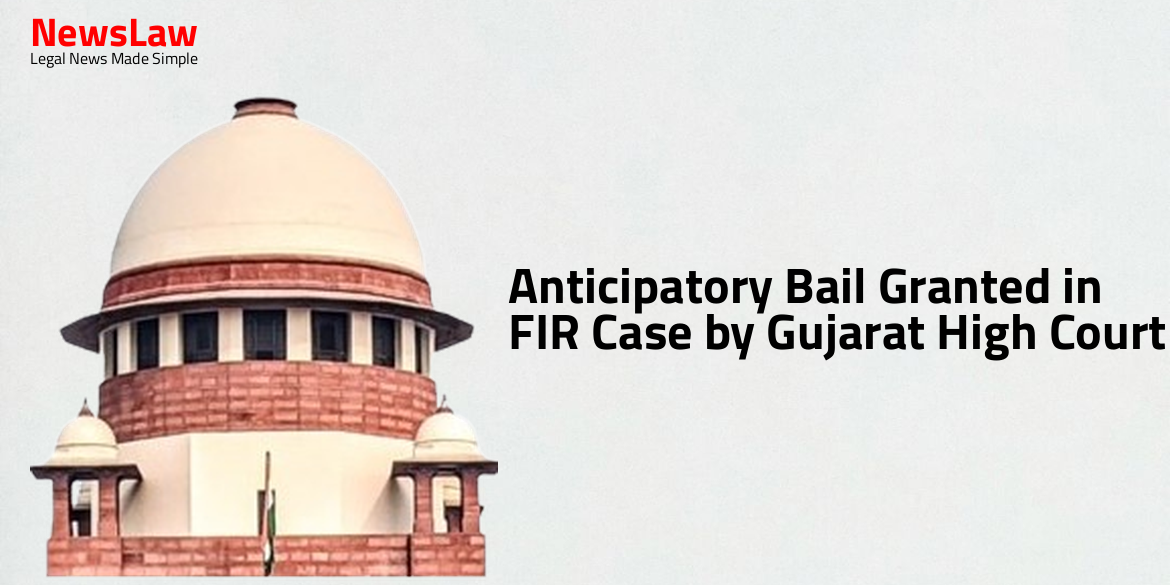In a significant ruling, the Gujarat High Court has quashed a detention order in the case of Bhavik Shah v. State of Gujarat, citing lack of nexus to public order. The court’s decision highlights the distinction between law and order issues and threats to public order. Stay informed on this legal development. #LegalCase #HighCourt #PublicOrder #DetentionLaws
Facts
- The applicant was granted bail for all the offences mentioned.
- The bail was granted despite the seriousness of the charges.
- The court considered factors that favored granting bail to the applicant.
- The decision to grant bail was based on the specific circumstances of the case.
Arguments
- Mr. Bhavik Shah, learned counsel for the petitioner, argues that the grounds of detention lack a nexus to public order and instead pertain to law and order.
- The offenses alleged against the detenue do not pose a threat to public order but only to law and order.
- The State Counsel argues that the detenue is a habitual offender whose activities impact society adversely.
- Considering the detenue’s antecedents and past activities, the Detaining Authority issued the order to prevent him from acting in a manner prejudicial to public order in Ahmedabad.
- The question arises whether the detention order under the Act of 1985 is legally sustainable given the circumstances.
Analysis
- The detaining authority wrongly concluded the petitioner’s activities were prejudicial to public order based on four criminal cases.
- Being a bootlegger does not automatically warrant preventive detention unless activities directly affect public order.
- There must be a distinction between serious public disorder and minor breaches of peace affecting specific individuals.
- The incidents involving the petitioner did not disrupt the even tempo of community life or affect public order.
- Such incidents are dealt with under ordinary criminal law and do not warrant preventive detention.
- The offences mentioned in the detention grounds do not impact public order according to the court’s analysis.
- The expression ‘public order’ must affect the community or the public at large to be considered as a public disorder.
- A decision in the case of Pushkar Mukherjee v. State of West Bengal distinguishes between ‘law and order’ and ‘public order’.
- Quarrels, fights, and assaults between individuals inside a house or on a street may amount to disorder but not public disorder.
- Mere disturbance of law and order is not enough to warrant action under preventive detention laws; it must disturb public order.
- The case of Piyush Kantilal Mehta Vs. Commissioner of Police, Ahmedabad, highlights the importance of proper grounds for a detention order.
- The offences alleged against the petitioner and the allegations made by witnesses do not create a feeling of insecurity, panic, or terror among the public.
- These alleged activities do not adversely affect or likely to affect the maintenance of public order.
- The material on record is insufficient to support the detainee’s actions as a threat to public order.
- The subjective satisfaction of the detaining authority is deemed illegal, invalid, and not in accordance with the law.
- As a result, the petition is allowed.
Decision
- The order dated 02.01.2024 passed by the respondent authority has been quashed.
- Direct service has been permitted.
- The detenue is directed to be set at liberty forthwith, unless required in any other case.
- The rule has been made absolute accordingly.
Case Title: CHIRAGBHAI JITENDRAKUMAR SHARMA Vs. STATE OF GUJARAT
Case Number: R/SCA/2359/2024



